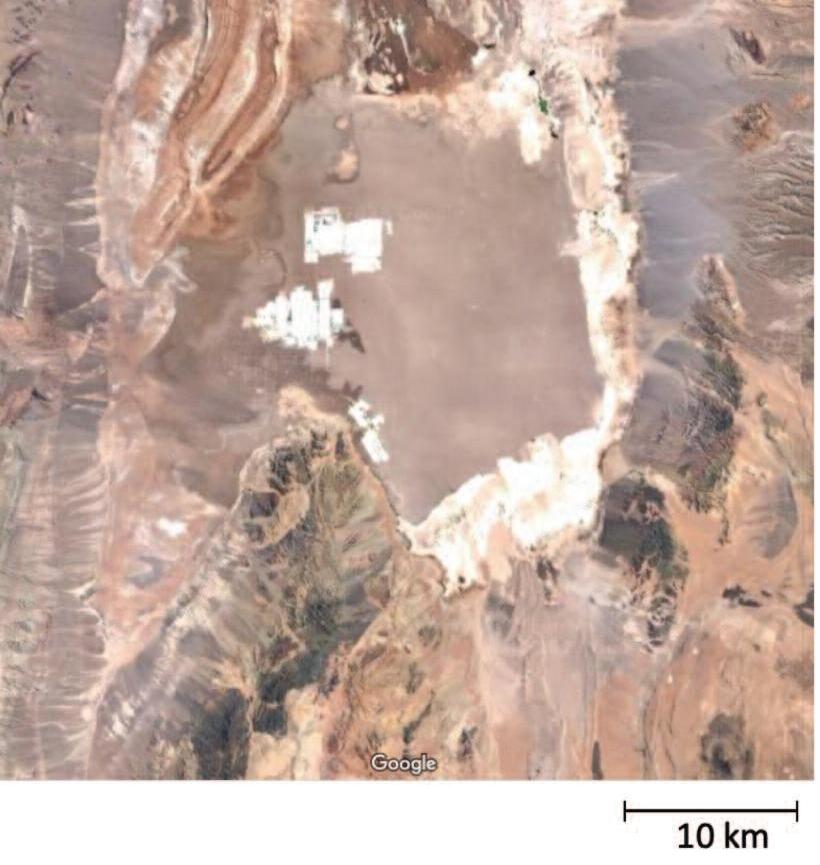
2 minute read
Scotland’s demand for lithium needs to be managed
By Kim Pratt, Circular Economy Campaigner
Lithium is having a moment in the news. The soft, silvery metal has been extracted commercially for over a century with a wide range of uses, but its demand is rising.
Advertisement
The most common use of lithium today is rechargeable batteries, and the main use of those is electric vehicles. This means that as we move from fossil fuel cars, our demand for lithium is going to increase rapidly (by between 13 and 51 times from 2020 to 2040, depending on how rapidly decarbonisation takes place), and there are already fears of running out in as soon as a few years’ time.
In 2022, Scotland consumed an estimated 142 tonnes of lithium. The bulk of this consumption – 82% – went towards private cars.
As well as the valid concerns around shortages, there are numerous other concerns about lithium mining and production. There is evidence of social and environmental impacts, including human rights abuses, connected with the lithium supplied to the Scottish economy Mining is associated with conflict because exploitation of mineral resources impacts upon nearby communities. It is an extremely energy intensive process and generates large amounts of toxic waste. It’s even more carbon intensive than coal mining There are also labour rights concerns reported right across the lithium supply chain, which is global and complex
Lithium-ion batteries used in Scotland are most likely to contain lithium from Chile and Australia. In both countries there is evidence of corruption, worker exploitation and mines depleting water sources for Indigenous communities and wildlife.
In Chile, brine evaporation, which uses vast quantities of water in an already parched environment, is one of the most significant concerns Mining activities are said to have consumed 65% of the Salar de Atacama region’s water The mining practices in the region mean that freshwater is less accessible to the 18 Indigenous Atacameno communities that live on the Atacama’s perimeter.
Unionised workers have also protested against exploitative working conditions
In 2021, workers settled a dispute at Albermale’s Salar de Atacama facility after opposing a contract which restricted union freedom and discriminated against the plant’s most vulnerable workers.
On the Maricunga Salt Flat, also in Chile, various companies are developing projects on the lands of the Colla People. Mining activities have disrupted their ancestral ceremonies, violating their Indigenous rights. The project developers, Minera Salar Blanco, assert they undertook a ‘lengthy process of social engagement’, but the communities say that they did not gain the consent of those affected The nearby Sales de Maricunga project, run by a consortium of three Chilean, Taiwanese and Japanese companies, offered no consultation at all.
Large-scale depletion of salt water from the aquifers also endangers various native species, including unique wetlands where fauna and flora – including migratory birds, the Andean fox, numerous small mammals – coexist in fragile circumstances
The impacts of mining lithium have led to public debate recently around whether we should be moving to electric vehicles at all The short answer is yes, we should. We must stop burning fossil fuels to meet our climate goals, which means fossil fuelled cars must be taken off our roads as soon as possible
Satellite image of lithium brine extraction sites in Salar de Atacama region of Chile in 2018, showing evaporation ponds using brine pumped from below the surface











